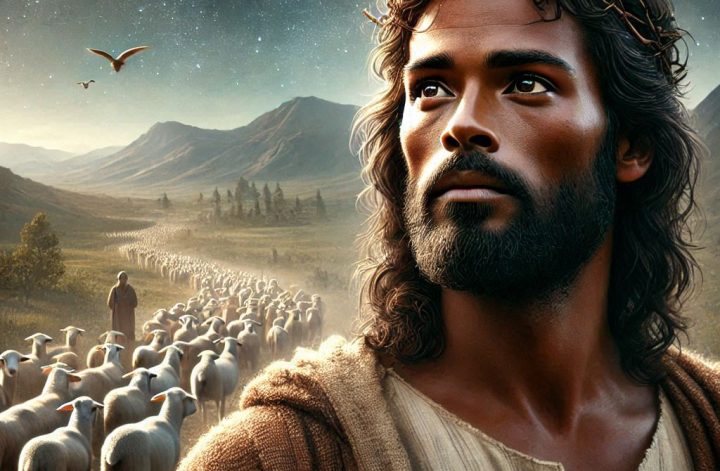Fewer biblical passages elicit intense visceral reactions than the Aqedah, the story of Abraham binding his long-awaited son Isaac for sacrifice as God commanded. This enteric rejection is not unique to modern readers, as some ancient readers, such as the prophet Jeremiah, felt just as strongly against child sacrifice. Traditionally, the account is often read as an instance of Abraham finally demonstrating complete reliance on God. This reading is not without merit. After all, Genesis chronicles Abraham’s sinusoidal faith in his journey with God. When called to leave his home country, Abraham obeyed without any questions (Genesis 12). God promised Abraham that he would become the father of many nations and that his descendant would inherit the land of Canaan (Genesis 12:7). Yet when there was a famine in the land, and he journeyed to Egypt for relief, Abraham had no troubles offering up his wife for potential sexual exploitation (Genesis 12:11-15). He did not even seek God for help – whether to go to Egypt in the first place or how to survive in Egypt. So, in one chapter, we see the man go from exercising enviable faith and departing his homeland to prioritizing self-preservation over the well-being of his wife. This wife was to enable him to become the father of many nations, as God promised. This pattern of highs and lows continues in Abraham’s life, as we shall see shortly. So, the traditional reading of the Aqedah is sensible, though not without problems.
The traditional reading of the Aqedah assumes something that fuels readers’ discomfort: that Yahweh may legitimately command child sacrifice. Yes, he called off the sacrifice at the last minute, but he commanded the sacrifice nonetheless. Indeed, the data for child sacrifice in the Hebrew Bible are not decisive. Yahweh said through Jeremiah:
Jeremiah 19:4-5 ESV
[4] Because the people have forsaken me and have profaned this place by making offerings in it to other gods whom neither they nor their fathers nor the kings of Judah have known; and because they have filled this place with the blood of innocents, [5] and have built the high places of Baal to burn their sons in the fire as burnt offerings to Baal, which I did not command or decree, nor did it come into my mind
Yahweh says here that he did not command or decree, nor did it come into his mind that his people should sacrifice their sons. A verse in Deuteronomy also seems to support this:
Deuteronomy 12:31 NRSV
[31] You must not do the same for the Lord your God, because every abhorrent thing that the Lord hates they have done for their gods. They would even burn their sons and their daughters in the fire to their gods.
But these are not decisive. First, Jeremiah lived centuries after the time of Abraham. Second, even this oracle should probably be read as God not commanding his people to sacrifice their sons to Baal, a rival god. In other words, it says nothing about their sacrifice to Yahweh. Third, there are other contrary data points:
Ezekiel 20:25-26 ESV
[25] Moreover, I gave them statutes that were not good and rules by which they could not have life, [26] and I defiled them through their very gifts in their offering up all their firstborn, that I might devastate them. I did it that they might know that I am the Lord.
Exodus 22:29-30 ESV
[29] “You shall not delay to offer from the fullness of your harvest and from the outflow of your presses. The firstborn of your sons you shall give to me. [30] You shall do the same with your oxen and with your sheep: seven days it shall be with its mother; on the eighth day you shall give it to me.
Exodus 34:19-20 NRSV
[19] All that first opens the womb is mine, all your male livestock, the firstborn of cow and sheep. [20] The firstborn of a donkey you shall redeem with a lamb, or if you will not redeem it you shall break its neck. All the firstborn of your sons you shall redeem. No one shall appear before me empty-handed.
The Exodus passages clearly show that Yahweh commanded that the firstborn offspring of some animals and humans must be offered to him. In the Exodus 34 passage, the law also provides for substitution or redemption of human firstborn. Debates continue to rage in scholarship about what all these things mean. Eve Feinstein writes:
In the end, the biblical evidence does not point to a single conclusive interpretation of the law in Exodus 22. On one hand, it may express a requirement (albeit aspirational) that every Israelite family sacrifice its firstborn son. While it is difficult to accept that the Torah commands the ritual slaughter of children, we can at least see in the commandment’s development an attempt to modify a bad law (as Ezekiel put it) by requiring monetary redemption in place of actual sacrifice (Exodus 34:20).
It is true that over time, the Hebrew Bible suggests that people found different ways of expressing what they took to be the heart of the commands. For instance, by the time of the Judges in Israel, some people like Hannah found a way of “sacrificing” their firstborn sons to Yahweh through service. As soon as Hannah weaned Samuel, she left him with Eli, the priest, to serve the Lord perpetually at the temple.
But the case may not be made that there were no child sacrifices to Yahweh in ancient Israel. Whether the people rightly understood the relevant laws of Yahweh is not the point here. The fact is that somehow, in early Israel history, some Israelites believed it was right to sacrifice their children by burning like their neighbors do. The story of Jephthah is instructive. Jephthah lived in the time of the judges just before the time of Samuel, who was the last of the judges of Israel. At this time in Israel’s history, the Judges were typically individuals who God chose to deliver Israel from outside enemies militarily. For Jephthah, the enemies were Amorites. Before he went to battle, Jephthah vowed to Yahweh thus:
Judges 11:29-31 ESV
[29] Then the Spirit of the LORD was upon Jephthah, and he passed through Gilead and Manasseh and passed on to Mizpah of Gilead, and from Mizpah of Gilead he passed on to the Ammonites. [30] And Jephthah made a vow to the Lord and said, “If you will give the Ammonites into my hand, [31] then whatever comes out from the doors of my house to meet me when I return in peace from the Ammonites shall be the Lord’s, and I will offer it up for a burnt offering.”
Well, Jephthah succeeded in battle, and on his return home, his only child and daughter came out of the doors to celebrate his victory. Though the narrator tells the reader that Jephthah was grieved, we do not read anything suggesting that he thought his vow was illegitimate, as children may not be offered as a burnt offering to Yahweh. Indeed, Jephthah proceeded to fulfill his vow (Judges 11:39).
Yes, we may say Jephthah made a rash vow, and later biblical traditions will discourage such vows. We may even point to the fact that Jephthah lacked parental guidance, seeing that he was the son of a prostitute and was rejected by his half-siblings earlier in life (Judges 11:1-3). Nevertheless, the text says, “the Spirit of the LORD was upon Jephthah” (Judges 11:29). It does not necessarily follow that the Spirit prompted the vow, but only that the Spirit was with Jephthah in his military movements for battle. (This may be an early indication for Christians that just because the Spirit is upon or indwells one does not mean one is infallible.) But, as already pointed out, the narrator does not explicitly discourage the reading that the Spirit had something to do with the vow either.
The relevance of all of this for our primary target, the Aqedah, is that child sacrifice was ubiquitous in the ancient Near East. The land promised to Abraham was the Canaanites’. One of the practices of the Canaanites that Yahweh despised was child sacrifice (Deuteronomy 12:29 – 30). Furthermore, Abraham lived among the Canaanites after God called him out of his homeland (Genesis 13:7, 12). So, the aqedah command to Abraham would not have been strange in any way. Everyone in that world sacrificed his child to his god, whether Molech or Baal. From Abraham’s perspective, the new God that Abraham was learning about was not asking for something unheard of.
Abraham would soon learn that this new God, Yahweh, would not go through with the request of the child sacrifice that he had commanded like the gods of the neighbors do and would provide a means for Abraham to redeem the command. As the New Testament emphatically claims, Abraham’s then-new God would later offer his own Son as the sacrifice to reorder the cosmos. But that is some millennia removed from Abraham’s time, and we must wrestle with the Aqedah on its own terms. Indeed, the Story and process that would result in the sacrifice of the Son of God started with Abraham. To that end, let us reintroduce Abraham in the context of the larger picture before zeroing in on the Aqedah specifically.
Work Cited
Feinstein, Eve. “Giving Your Firstborn Son to God.” TheTorah.com, 2016, www.thetorah.com/article/giving-your-firstborn-son-to-god.





2 Comments